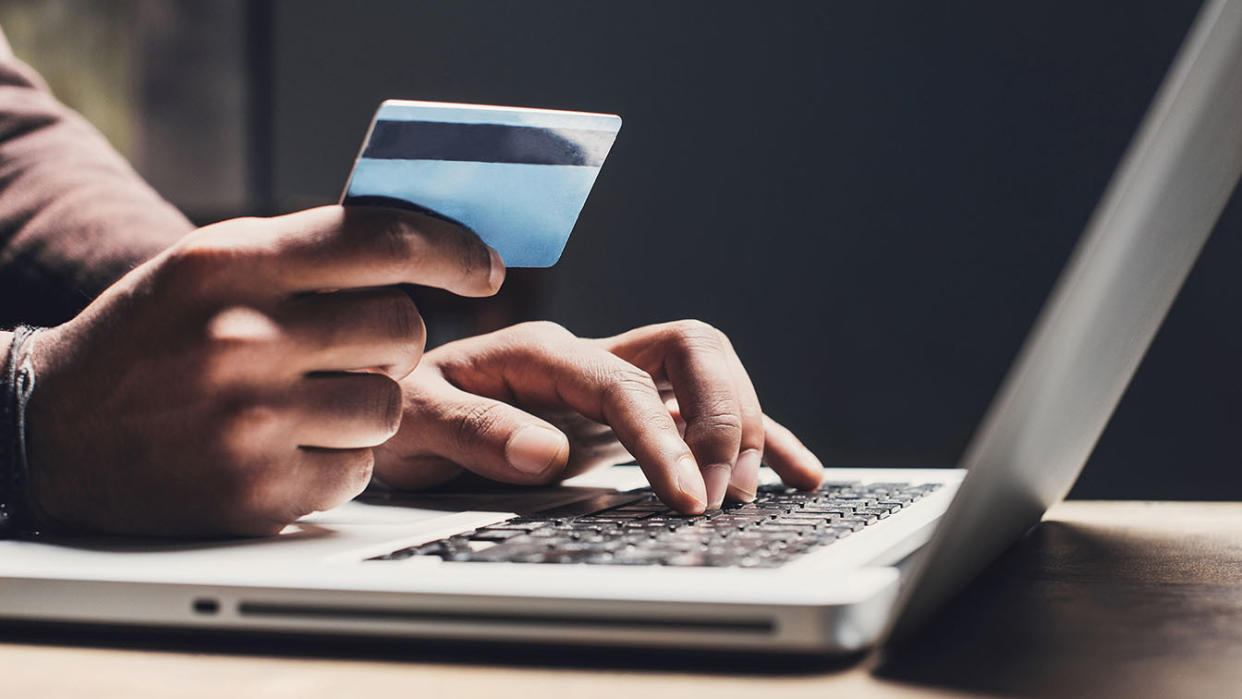COVID and stimulus scams have cost Americans more than half a billion dollars so far
Criminals have swindled Americans out of a jarring $585 million through coronavirus and stimulus-related scams since early 2020, according to data collected by the Federal Trade Commission, and the number is steadily rising.
From Jan. 1, 2020, through Oct. 14, 2021, the FTC collected 624,500 reports of COVID-19 and stimulus scams that were submitted directly to the agency or partner contributors. A majority of the victims were contacted either by email, websites and apps or text messages. While people ages 30 to 39 filed the highest number of reports of any age demographic, those ages 60 to 69 lost the most amount of money ($113 million).
The median fraud loss for victims is $392, the FTC said in its report, and that number rises to $510 for 20-year-olds and up to $1,000 for those 80 and over.

Four people were charged earlier this month in a fraud scheme designed to take advantage of New York City’s COVID-19 hotel program. A partnership between the city and the Federal Emergency Management Agency, the program provided free hotel rooms for up to 14 days for health care workers and anyone needing to self-isolate after contracting or having been exposed to the virus. The four people charged are accused of securing those rooms by falsely claiming to be health care workers, then selling them to others.
“At the height of the COVID-19 pandemic in 2020, New York City designed a program to provide hotel rooms, free of cost, for qualifying individuals who could not safely self-isolate in their own homes, such as health care workers and individuals infected with COVID-19,” Manhattan U.S. Attorney Audrey Strauss said in a statement. “As alleged, the defendants abused this program by falsely claiming to be health care workers and by selling hotel rooms to non-qualifying individuals.”

The FTC warns on its website that many scams that have arisen during the pandemic. Here’s a look at some of the most common:
Vacation and travel
According to the FTC, vacation- and travel-related scams have cost consumers about $81 million since the start of the pandemic and have accounted for 46,000 complaints. While refunds and cancellations ignited most of the reports in this category, COVID-19 testing fraud has also played a factor.
One of the most frequent complaints reported, according to the Better Business Bureau, is consumers purchasing cheap travel through a fraudulent booking service. In another variation, some travelers made purchases with legitimate companies only to be contacted by fraudsters claiming to be a service representative asking for more money. The BBB says that that request would never come from a legitimate company.
“I received a phone call right after [I booked a flight] stating that they wanted $100 per passenger to finalize my flight,” one victim, who contacted the bureau, said. After calling the airline to complain, the victim discovered that “the flight wasn’t available to begin with. The flight was never booked ... this company just charged my card.”
The FTC and the BBB both say vacation and travel fraud have risen since the start of the pandemic, and that some complaints have also been filed against credible companies.
“We can’t comment on specific companies, but consumers file FTC reports about a wide range of companies, some of which are household names and others not,” an FTC spokesperson told Yahoo News. “The FTC cannot help resolve each individual complaint. However, the FTC uses the reports people file to bring cases and target its education and outreach.”
The spokesperson added: “For travel/vacation scams, this could include people who had travel or a vacation scheduled that got canceled because of the pandemic — and then they didn’t get their money back.”
new scam going about babs saying it’s from the NHS saying you need to respond in 12 hours to get a Covid Travel certificate with some questionable links, be safe kiddos
— Emaleigh Conn (@EmaleighConn) September 28, 2021
It continues like that for a while, then switches to French, then it’s a story about travel restrictions in South America because of COVID, then it throws all the scam tricks out like spaghetti pic.twitter.com/vKNSShzNJ6
— Joel (@turnipthebeets) September 27, 2021
Online shopping
Online shopping-related scams accounted for the biggest number of reports to the FTC and have cost Americans $47.3 million since early 2020. Scammers have often promised the sale of items needed most during the pandemic, such as disinfectant or face masks, accepting payment but not delivering.
“For shopping, some of the reports we have received from consumers include people who ordered something related to the pandemic – such as face masks or hand sanitizer – that didn’t arrive, didn’t arrive when promised, or the product wasn’t as advertised,” the FTC spokesperson said.
The key to avoid getting scammed, the FTC says, is to verify the authenticity of an online seller before purchasing from them or providing credit card information.
Price gouging
According to a 2020 report from the Consumer Federation of America, price gouging was the most commonly cited complaint related to the coronavirus pandemic. States and cities have enacted task forces, new laws and new regulations to address this issue.

“A retailer was charging $100 for a pack of Purell wipes and $79 for hand sanitizer” in New York, the FTC report states. “A 12-pack of Scott's paper towels was priced at $51. A store was selling a gallon of milk for $9.19.”
The report adds that the state and local consumer agencies involved in the survey helped recover more than $263,000,000 for consumers in 2020.
Stimulus checks
Another major issue reported to the FTC and the BBB has been stimulus check scams. These checks became a major topic of discussion in 2020 and criminals used the opportunity to cash in. They would send fake checks and ask consumers to pay a small fee to get the rest of the money. The goal was to obtain Social Security numbers or banking and credit card information of their victims. Scammers tried to get creative, even using hearing aids as a way to steal money under a phishing operation labeled “COVID-19 HEALTHCARE STIMULUS PROGRAM”
“Payments are issued automatically, with no action required on your part,” said Steve McFarland, president and CEO of the Better Business Bureau of Los Angeles & Silicon Valley. “No one will call, email or text you from the government about your check, and you should never pay any fees to receive your stimulus payment. Nor should you receive a message on how to find out the status of your stimulus payment.”
____
Read more from Yahoo News:
